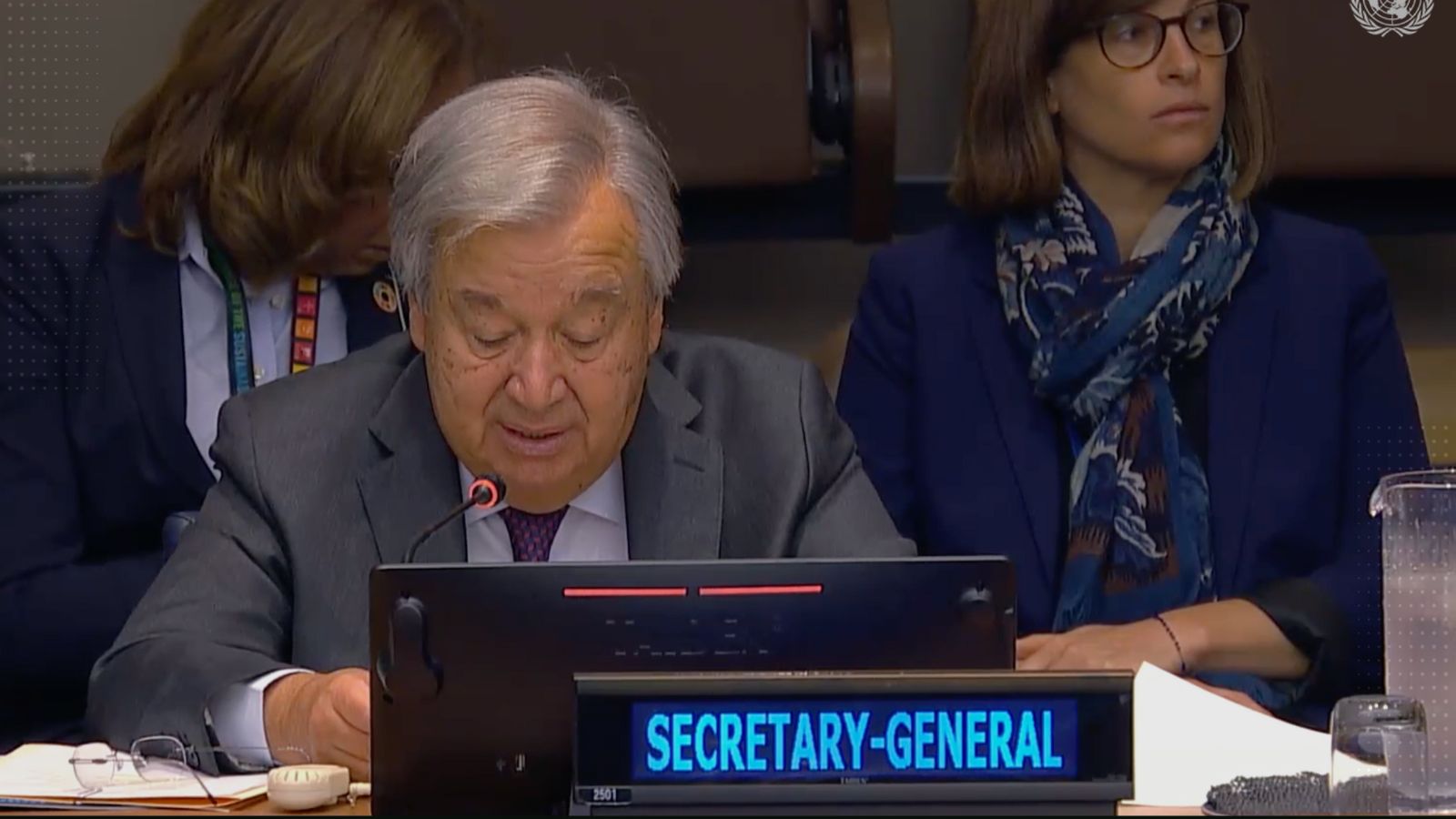UNCAS was not the only party in town, but it’s the one the VIP guests wanted to join. While the great and good of the UN gathered in New York last week, Secretary General Antonio Guterres convened a summit designed to galvanise climate action in the run up to COP28.
Only the “movers and doers” were invited. Of the 100 governments that wanted to speak, just 34 were allowed to. Of the G20 nations, only Brazil, Canada, France, Germany and South Africa made the grade. Reports suggest that despite heavy pressure from heavyweight governments like the US and UK, the message from Guterres was clear – if you’re actions on climate are inadequate, you’re not welcome (hardly surprising in the week that UK Prime Minister Rishi Sunak watered down a number of key climate pledges, following up this week by declaring his government’s decision to offer new licences for oil and gas exploration as the “right long-term decision” for the UK). This of course meant that many of the world’s biggest emitters, including China and India, did not attend.
Anticipations are high for discussions at UN COP28 in December, with goals such as tripling renewables and fossil fuel phase-out on the agenda
‘Playing for fools’
As king of the climate soundbite, Guterres’ opening remarks were typically uncompromising and combative, taking aim directly at the vested interests of the fossil fuel industry that he believes are slowing progress. “Climate action is dwarfed by the scale of the challenge… We must make up time lost to foot-dragging, arm-twisting and the naked greed of entrenched interests raking in billions from fossil fuels.”
Fossil fuels are responsible for three-quarters of all greenhouse gas emissions, and Guterres was not alone in pointing the finger. The loudest cheer was for California Governor Gavin Newsom, who held little back in unloading directly on those at fault. “This climate crisis is a fossil fuel crisis. It’s not complicated,” he railed. “It’s the burning of oil, the burning of gas, the burning of coal. We need to call that out. For decades, the oil industry has been playing each and everyone in this room for fools. Their deceit and denial going back decades has created the conditions that persist here today.”
Global leaders proceeded to pile in, with many heads of state highlighting the need to phase out fossil fuels, a major shift since the last Climate Action Summit in 2019. These included EU Commission President Ursula von der Leyen, German Chancellor Olaf Scholz, Chilean President Gabriel Boric, Tuvalu Prime Minister Kausea Natano and Republic of Marshall Islands President David Kabua. Some, including Chile and Colombia, also highlighted the malign influence of the fossil fuel industry on national policy making and multilateral processes, including within the UN itself.
Widespread cynicism
This concerted effort in the run up to COP28 was no coincidence. Held in the United Arab Emirates, the seventh largest oil producer in the world last year, and chaired by Sultan Al Jaber, CEO of the Abu Dhabi National Oil Company, the message was clear – we are watching you and our patience with the industry you serve is running thin.
Al Jaber and Guterres make the unlikeliest of bedfellows, but both stood side by side to close the summit. The former acknowledged the world was well off track in tackling climate change (he could do little else without dealing a hammer blow to his credibility) and called for leaders to “go after the gigatonnes and not each other”, no doubt a pointed reference to the cynicism with which his appointment as COP President has been widely met. He did, however, say that his country’s COP plan for tripling renewable energy capacity was gathering momentum, with support from the EU, Kenya, the African Union Commission and the G20. He also called for countries to outline plans to decarbonise heavy industries, replenish the Green Climate fund and make early pledges towards the loss and damage fund.
Big hitters
Whether his words represent mere platitudes or a deeper commitment to action will soon become clear. For as Petter Lydén, head of international climate policy at NGO Germanwatch, says, while “the calls to stop burning fossil fuels were louder, more plentiful and came with less limitations than before… In the time between now and COP28, these leaders and likeminded ones need to cement this message among parties to the Paris Agreement, so that an unambiguous decision to phase out all fossil fuels can be taken in Dubai.”
With COP28 kicking off in just two months, the next few weeks are critical for laying the groundwork for meaningful agreement. The consensus at UNCAS is encouraging, but without the backing of the world’s biggest economies and emitters, conspicuous by their absence, the tough words could have limited impact. Diplomatic efforts will be frantic, and include a virtual G20 meeting, called for by Indian Prime Minister Modi for November, as well as a possible Biden-Xi meeting on the sidelines of the Asia-Pacific Economic Cooperation summit in San Francisco, taking place just three weeks before COP. If the leaders of the US, China and India can pick up where those at UNCAS left off, the chances for a successful COP will be so much the greater.






